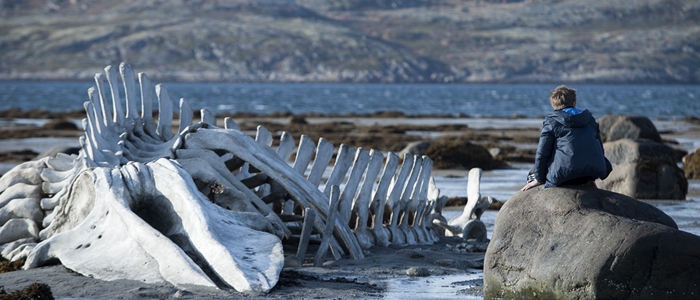Leviathan, film review
11/06/2014
The wonder of Andrey Zvyagintsev’s brilliant new film is that it works both as a Chekhov-style family tragedy and as an extremely barbed satire exposing corruption in contemporary Russia.
The film-makers portray a country in which the ordinary people are treated as insects “drowning in shit”. They have no rights. The politicians and the church, working hand in hand “for the same cause,” lord it over them. We can’t help but notice the pictures of President Putin hanging prominently in the offices of the corrupt local dignitaries.
The impetuous Kolya (Aleksey Serebryakov) is battling with the local mayor (Roman Madyanov) to hold on to his home in a seaside town. The mayor wants it as part of some crooked property development scam and is ready to use blackmail and intimidation to make Kolya leave. Fuelled by pride, a sense of injustice and copious amounts of vodka, Kolya has the temerity to stand up to the politician. He enlists a lawyer friend, Dima (Vladimir Vdovichenkov), from Moscow to represent him. It doesn’t help domestic harmony that Kolya’s wife, Lilya (Elena Lyadova), is attracted to Dima, or that his teenage son (Sergey Pokhadaev) from his first marriage detests Lilya.
The mood of the film oscillates wildly. At times, especially in its portrayal of the mayor and his fast-talking cronies in the courts or of the church leaders, it is very funny. This is a world in which icons of venerated saints and images of naked pin-ups sit side by side on car dashboards. Alongside the humour, there are sudden outbreaks of violence. The characters are fatalistic. If they’re beaten up by heavies or betrayed by their partners, they give the impression that such bad fortune was only to be expected.
Some of the dialogue is despairing in the extreme. “Men are all the same. First you are pretty. Then, they kill you,” one character glumly bemoans her situation. In its bleak way the film is beautiful, full of wintry landscapes and poetic shots of the huge whalebones that lie discarded on the shore. There is an undertow of very cruel irony to the storytelling. What is most dispiriting is the sense that Kolya’s plight is not unusual and that this is just a tale of everyday life in modern Russia.
Geoffrey MACNAB
"The Independent"
